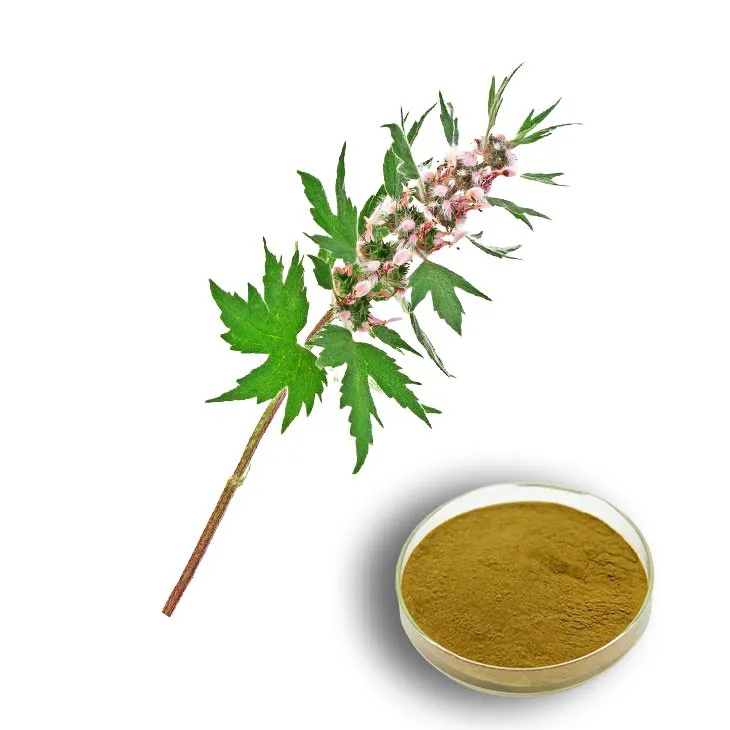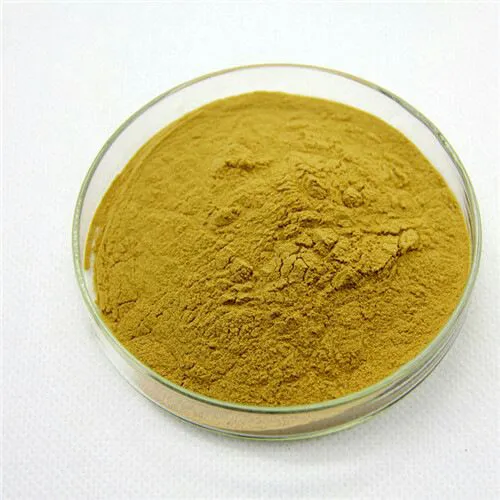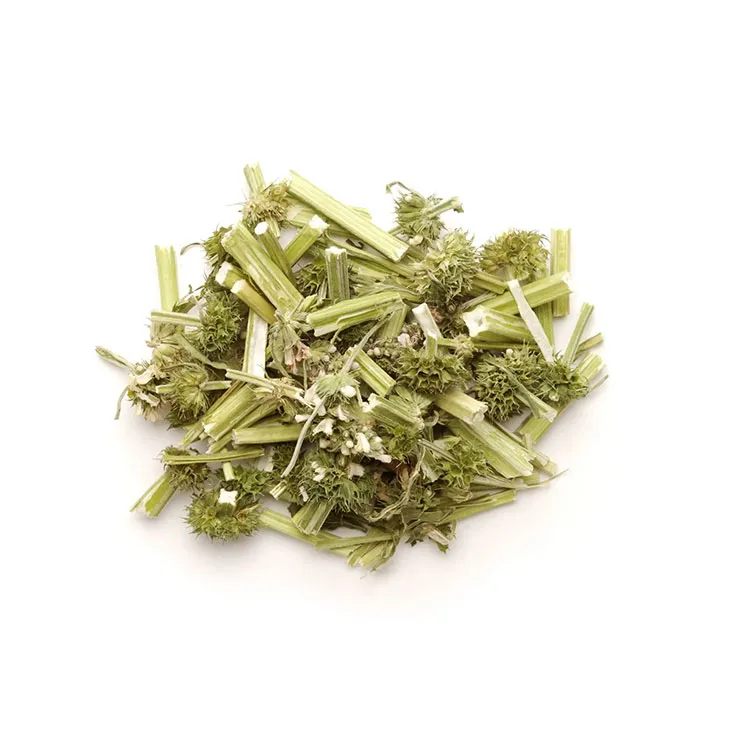- 0086-571-85302990
- sales@greenskybio.com
Four Major Benefits of Motherwort Extract for Women of All Ages.
2024-11-12

Introduction
Motherwort, a herbaceous plant known scientifically as Leonurus cardiaca, has been used in traditional medicine for centuries. Motherwort Extract has emerged as a natural supplement with numerous potential benefits for women throughout different stages of their lives. From the onset of puberty to the post - menopause phase, this extract offers unique advantages that can enhance women's health.

Benefit 1: Promoting Blood Circulation
Good blood circulation is fundamental to overall health, and for women, it has particular significance, especially in relation to the reproductive system.
During Puberty
As girls enter puberty, their bodies undergo significant hormonal and physiological changes. Motherwort Extract can play a role in ensuring proper blood circulation within the developing reproductive organs. It helps in delivering essential nutrients and oxygen, which are crucial for the normal growth and function of the ovaries, uterus, and other related structures. This can contribute to the establishment of regular menstrual cycles from the very beginning, reducing the likelihood of irregularities that may occur due to poor blood supply.
Reproductive Years
In a woman's reproductive years, the demand for efficient blood circulation in the pelvic region is high. Motherwort Extract aids in maintaining a healthy blood flow to the uterus, which is essential for proper implantation of a fertilized egg in case of pregnancy. It also supports the ovaries in their regular function of producing hormones and releasing eggs. Additionally, good blood circulation helps in preventing blood stasis in the pelvic area, which can be associated with conditions such as endometriosis or pelvic inflammatory disease.
Post - Menopause
After menopause, women are at an increased risk of cardiovascular problems due to hormonal changes. Motherwort extract continues to be beneficial as it promotes blood circulation throughout the body, including the heart and blood vessels. This can help in reducing the risk of heart disease, stroke, and other cardiovascular disorders, which are more prevalent in post - menopausal women.

Benefit 2: Reducing Pre - menstrual Syndrome (PMS) Symptoms
Pre - menstrual syndrome is a common issue that affects many women in their reproductive years. Motherwort extract has shown promise in alleviating the symptoms associated with PMS.
- Mood Swings: One of the most distressing PMS symptoms for many women is mood swings. Motherwort extract may have a calming effect on the nervous system. It can help regulate neurotransmitters in the brain, such as serotonin, which is closely associated with mood regulation. By promoting a more stable mood, it can make the pre - menstrual phase more bearable for women.
- Abdominal Cramps: The extract has antispasmodic properties. This means it can relax the smooth muscles in the uterus and the gastrointestinal tract. For women experiencing abdominal cramps during their pre - menstrual period, motherwort extract can help relieve the pain and discomfort. It reduces the intensity of uterine contractions, which are often the cause of the cramping sensation.
- Breast Tenderness: Hormonal changes during the pre - menstrual phase can lead to breast tenderness. Motherwort extract may help balance the hormonal levels, reducing the swelling and pain in the breasts. It can also have an anti - inflammatory effect, which further alleviates the discomfort associated with breast tenderness.

Benefit 3: Assisting with Post - Partum Recovery
The post - partum period is a crucial time for a new mother's physical and mental well - being. Motherwort extract can offer valuable support during this recovery phase.
Uterine Contraction and Bleeding
After childbirth, the uterus needs to contract back to its pre - pregnancy size. Motherwort extract can stimulate uterine contractions, which helps in reducing post - partum bleeding. This is essential as excessive bleeding can lead to anemia and other health complications. By promoting efficient uterine involution, it also helps in preventing the formation of blood clots within the uterus.
Emotional Well - being
The post - partum period is also associated with significant hormonal changes that can affect a mother's mood. Many new mothers experience the so - called "baby blues" or, in more severe cases, post - partum depression. Motherwort extract may have a positive impact on the mother's emotional state. It can help relieve stress and anxiety, promoting a more positive mental outlook. This can be beneficial not only for the mother but also for the overall well - being of the new - born as a more relaxed mother is better able to care for her baby.

Benefit 4: Preventing Gynecological Diseases
Motherwort extract may play a role in preventing certain gynecological diseases at any age.
During Reproductive Years
In the reproductive years, it can help prevent infections in the reproductive tract. Its antimicrobial properties can inhibit the growth of harmful bacteria and fungi that may cause infections such as yeast infections or bacterial vaginitis. By maintaining a healthy balance of the vaginal flora, motherwort extract reduces the risk of these common gynecological problems.
Long - term Prevention
Over the long - term, regular use of motherwort extract may contribute to a lower risk of developing more serious gynecological conditions. For example, it may help in preventing the development of uterine fibroids. Fibroids are non - cancerous growths in the uterus that can cause symptoms such as heavy menstrual bleeding, pelvic pain, and infertility. Motherwort extract's ability to regulate hormonal balance and promote blood circulation may play a role in inhibiting the growth of fibroids. Additionally, it may also have a preventive effect against ovarian cysts, another common gynecological issue.
Conclusion
Motherwort extract offers a range of benefits for women of all ages. From promoting blood circulation, reducing PMS symptoms, assisting with post - partum recovery, to potentially preventing gynecological diseases, it is a natural supplement worthy of consideration. However, it is important to note that while motherwort extract has shown potential in these areas, more research is still needed to fully understand its mechanisms of action and long - term effects. Women should also consult their healthcare providers before starting any new supplement, especially if they have pre - existing medical conditions or are taking other medications.
FAQ:
What is motherwort extract?
Motherwort extract is a substance derived from the motherwort plant. It contains various bioactive compounds that are believed to have beneficial effects on women's health.
How does motherwort extract promote blood circulation in women?
The bioactive components in motherwort extract may act on the blood vessels, potentially relaxing them and improving blood flow. This can be beneficial for the overall health of the reproductive system and general well - being.
Can motherwort extract really reduce pre - menstrual syndrome symptoms?
Yes, it may help. Some of the properties of motherwort extract can potentially regulate hormonal imbalances and ease the physical and emotional symptoms associated with pre - menstrual syndrome, such as cramps, mood swings, and bloating.
How does motherwort extract assist in post - partum recovery?
Motherwort extract may help in post - partum recovery by promoting uterine contractions, which can aid in reducing bleeding and helping the uterus return to its normal size more quickly. It may also have a positive impact on the overall hormonal balance during this period.
Is motherwort extract effective in preventing gynecological diseases at all ages?
While there is some evidence suggesting that motherwort extract may have a preventive effect on certain gynecological diseases, more research is needed. The bioactive compounds in it may contribute to maintaining a healthy reproductive system environment, which could potentially reduce the risk of some diseases.
Related literature
- Beneficial Effects of Motherwort on Women's Health: A Review"
- "Motherwort Extract and Female Reproductive Health: Current Research"
- ▶ Hesperidin
- ▶ citrus bioflavonoids
- ▶ plant extract
- ▶ lycopene
- ▶ Diosmin
- ▶ Grape seed extract
- ▶ Sea buckthorn Juice Powder
- ▶ Beetroot powder
- ▶ Hops Extract
- ▶ Artichoke Extract
- ▶ Reishi mushroom extract
- ▶ Astaxanthin
- ▶ Green Tea Extract
- ▶ Curcumin Extract
- ▶ Horse Chestnut Extract
- ▶ Other Problems
- ▶ Boswellia Serrata Extract
- ▶ Resveratrol Extract
- ▶ Marigold Extract
- ▶ Grape Leaf Extract
- ▶ blog3
-
Cranberry Plants and Skin - care Products.
2024-11-12
-
Quercetin
2024-11-12
-
Rose Hip Extract
2024-11-12
-
White Willow Bark Extract
2024-11-12
-
Thunder God Vine Extract
2024-11-12
-
Acerola Juice Powder
2024-11-12
-
Motherwort Extract
2024-11-12
-
Panax Ginseng Leaf Extract
2024-11-12
-
Scutellaria Extract
2024-11-12
-
Carrageenan Extract Powder
2024-11-12
-
Feverfew Extract
2024-11-12




















